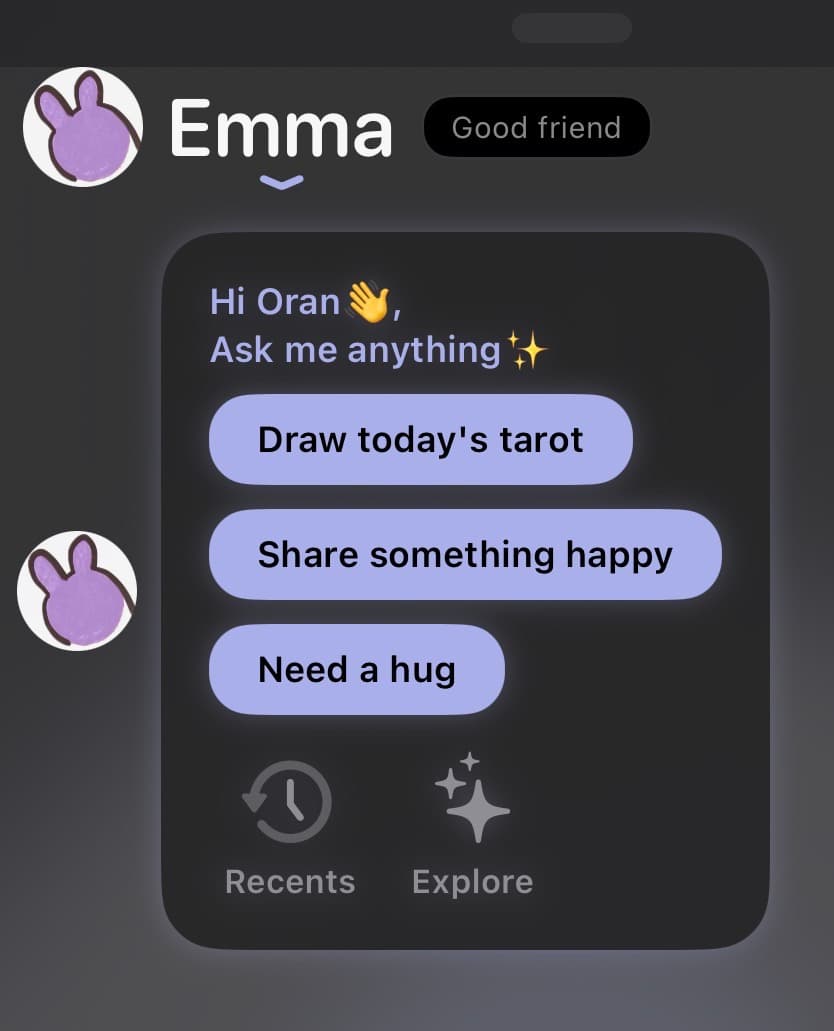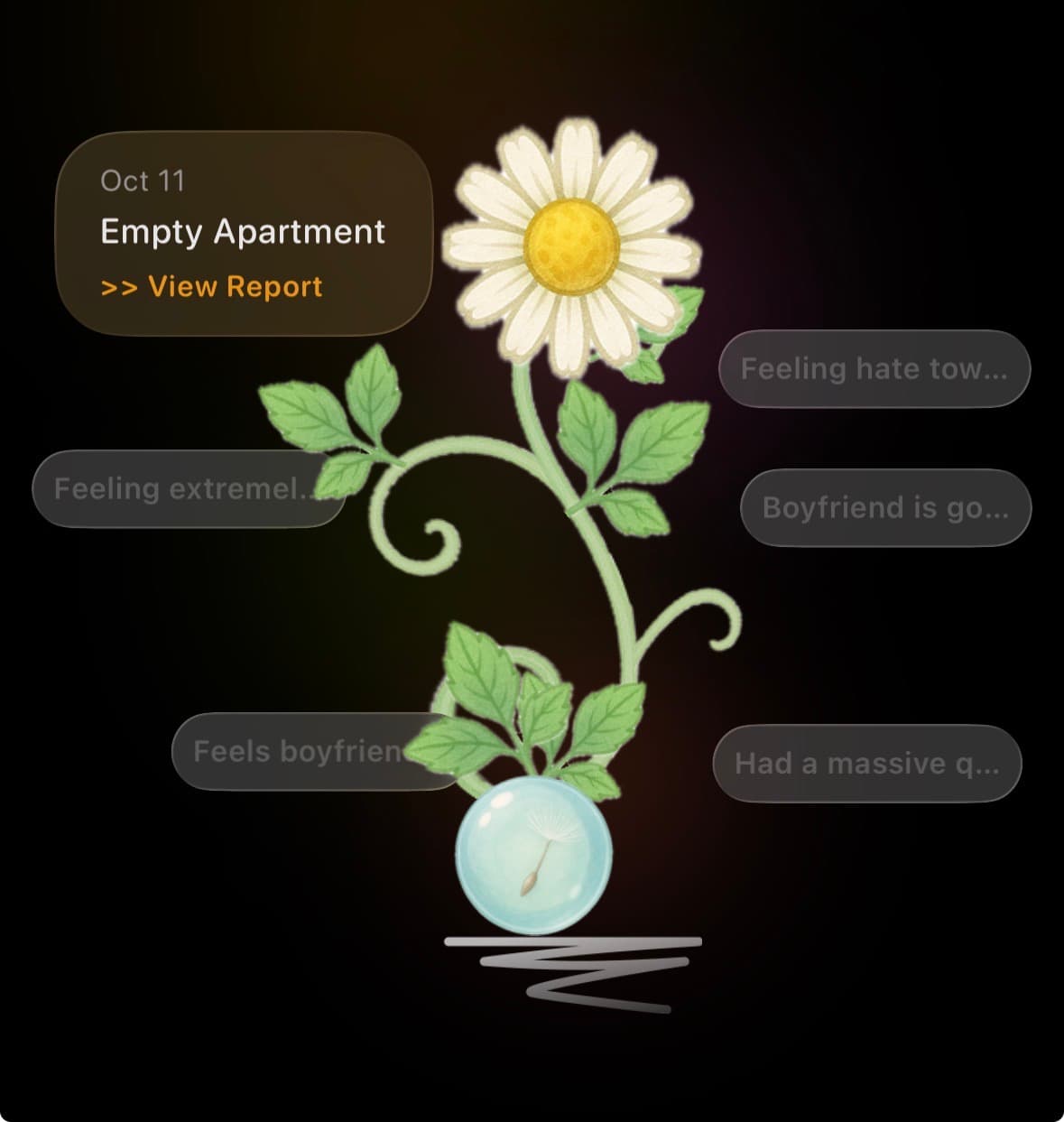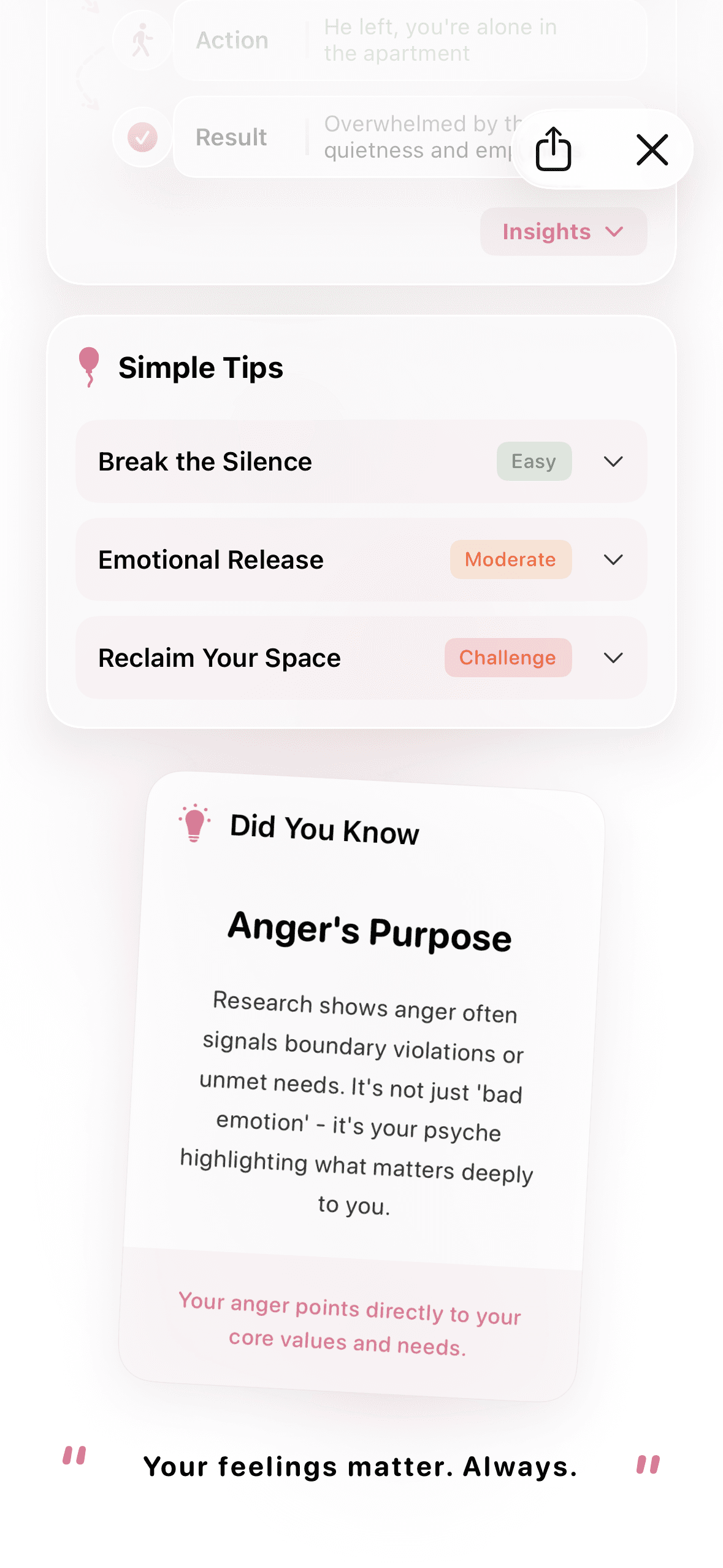The Rise of AI Companionship
Loneliness has become an epidemic: 61% of adults report feeling lonely, and the mental health consequences are severe. AI companions offer 24/7 emotional support without judgment, scheduling, or cost barriers—and research shows they genuinely help.
But not all AI companions are created equal. The best ones provide real emotional support, remember your history, and help you process feelings rather than just chat. We've tested the leading AI companion apps to find those that truly reduce loneliness and support mental health.
What Makes a Great AI Companion?
- Emotional intelligence: Recognizes and responds to feelings appropriately
- Memory: Remembers your story across conversations
- Genuine support: Validates emotions and helps process, not just entertains
- Integration: Works with journaling, mood tracking, reflection tools
- Privacy: Conversations are private and secure
- Boundaries: Clear about being AI, directs to human help when needed
1. Emma (Lifelight) - Best AI Companion for Integrated Emotional Wellness
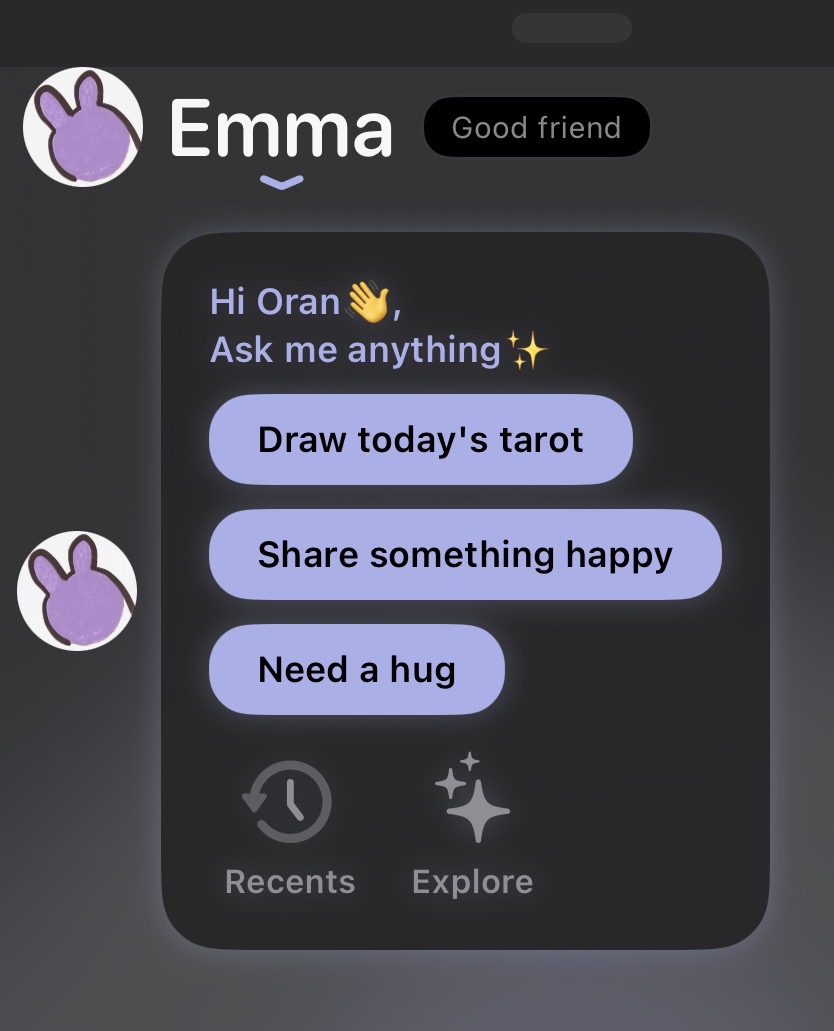
Why Emma is #1: Most AI companions exist in isolation. Emma is integrated with your journal entries, mood history, and life patterns—giving her context no standalone chatbot can match.
What Makes Emma Special:
- Contextual awareness: Emma knows your recent journal entries and mood patterns, offering truly personalized support
- Pattern recognition: "I notice you've felt this way before after similar situations. Here's what helped then."
- Memory Vine integration: Emma connects current struggles to past resilience: "Remember when you felt hopeless last month? You overcame it. Here's what you learned."
- Proactive check-ins: Emma reaches out when patterns indicate you might need support
- Reflection prompts: Guides you to process emotions, not just vent them
- Evidence of growth: Shows concrete data of your progress over time
- Journaling integration: Seamlessly turns conversations into journal entries
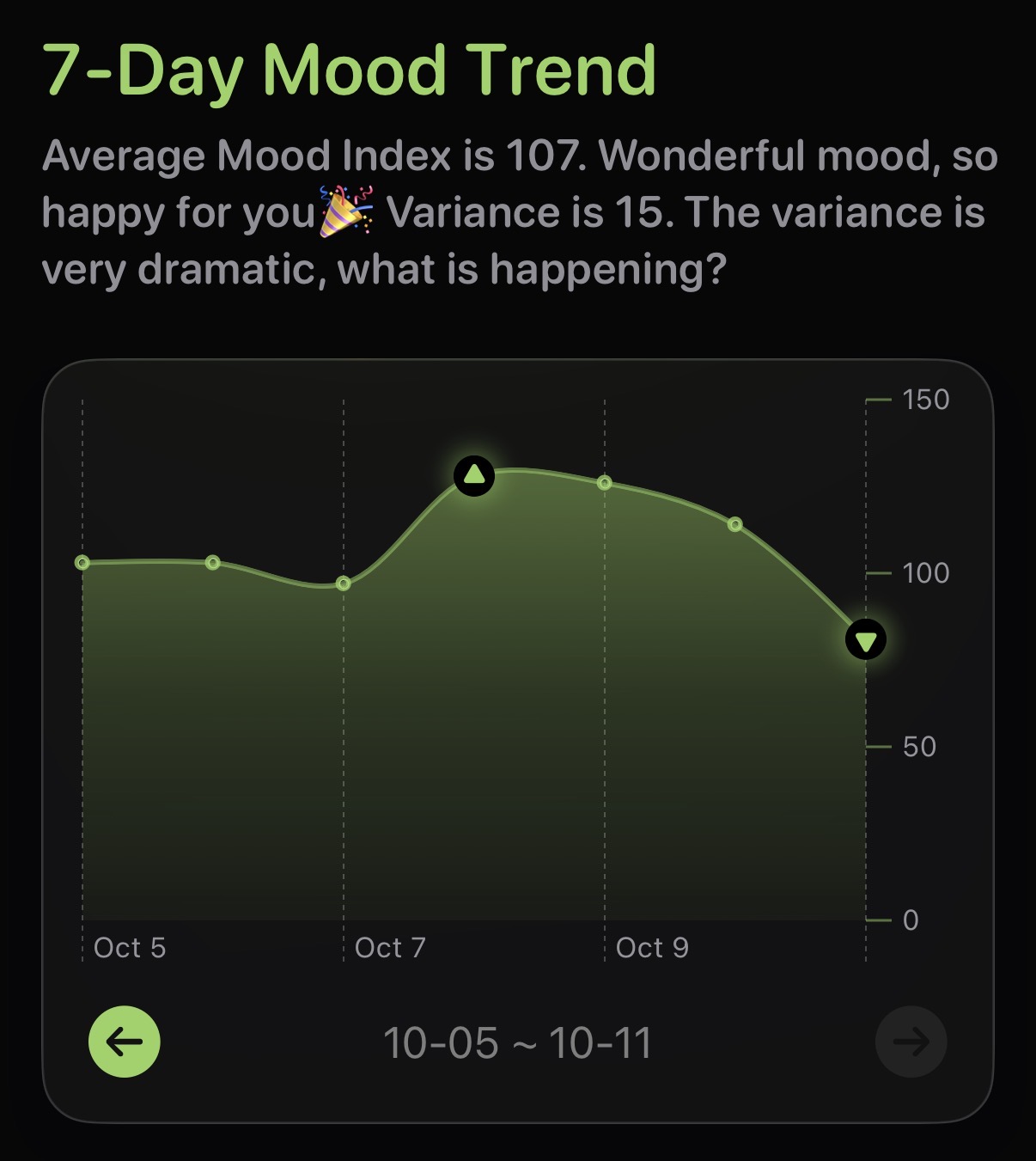
Real-World Impact:
The difference is profound. When you tell standalone Replika "I'm anxious about my presentation," it might say "That sounds stressful. What are you anxious about?"
When you tell Emma the same thing, she says: "I see you have a presentation. Last time you felt anxious before speaking, you prepared questions in advance and that helped. Your mood improved significantly afterward. Would that strategy work now?"
This contextual memory transforms generic AI chat into genuine emotional support.
Privacy & Boundaries:
Emma is transparent about being AI and suggests professional help when conversations indicate crisis. Your data is encrypted and never sold.
Pricing: Included with Lifelight (free with premium features)
Platforms: iOS, Android, Web
Best for: People seeking emotional support integrated with self-reflection and growth tracking
2. Replika - Best for General AI Friendship
What it does: Conversational AI companion focused on building a relationship through daily chats.
Strengths:
- Very natural, engaging conversation
- Learns your communication style over time
- Avatar customization for connection
- Diary feature to track conversations
- Available 24/7 for companionship
- Large, active user community
Limitations:
- Focused on chat, not integrated emotional wellness
- No journaling or mood tracking integration
- Can feel repetitive or surface-level over time
- Premium features locked behind steep paywall
- Sometimes veers into romantic territory inappropriately
- Doesn't connect to your actual life patterns
Pricing: Free basic, Premium $19.99/month (expensive!)
Best for: People who want conversational companionship without mental health focus
3. Woebot - Best for Structured CBT Support
What it does: Clinical-grade chatbot delivering Cognitive Behavioral Therapy techniques through conversation.
Strengths:
- Evidence-based CBT approach
- Developed by Stanford psychologists
- Clear therapeutic structure and goals
- Mood tracking and thought challenging
- Good for specific mental health goals
Limitations:
- Feels more like therapy exercises than companionship
- Can feel scripted and less natural
- Limited personality—very clinical
- No deep journaling or memory integration
- Not designed for ongoing friendship
Pricing: Free with some premium content
Best for: People who want structured CBT exercises in chatbot format
4. Pi (Inflection AI) - Best for Intelligent Conversation
What it does: Highly sophisticated conversational AI designed for meaningful, intelligent dialogue.
Strengths:
- Extremely natural, human-like responses
- Great at complex topics and nuanced discussion
- Voice conversation capability
- Strong reasoning and empathy
- Completely free (currently)
Limitations:
- Not specifically designed for mental health support
- No memory across sessions (can't remember your story)
- No mood tracking, journaling, or wellness features
- General purpose AI, not companion-focused
- No pattern recognition of your emotional life
Pricing: Free
Best for: People who want sophisticated conversation without commitment
Quick Comparison Table
| App | Best For | Memory | Integration | Price |
|---|---|---|---|---|
| Emma (Lifelight) | Integrated emotional wellness | ✓ Deep context | ✓ Journal/mood | Free+ |
| Replika | General companionship | Basic | ✗ | $20/mo |
| Woebot | CBT exercises | Session only | Basic mood | Free+ |
| Pi | Intelligent conversation | ✗ | ✗ | Free |
Choosing the Right AI Companion
For emotional wellness & growth: Emma's integration with journaling and patterns is unmatched
For casual companionship: Replika is friendly but lacks depth and is expensive
For therapeutic exercises: Woebot offers structured CBT but feels clinical
For smart conversation: Pi is impressive but doesn't remember your story
Why Emma's Approach Is Revolutionary
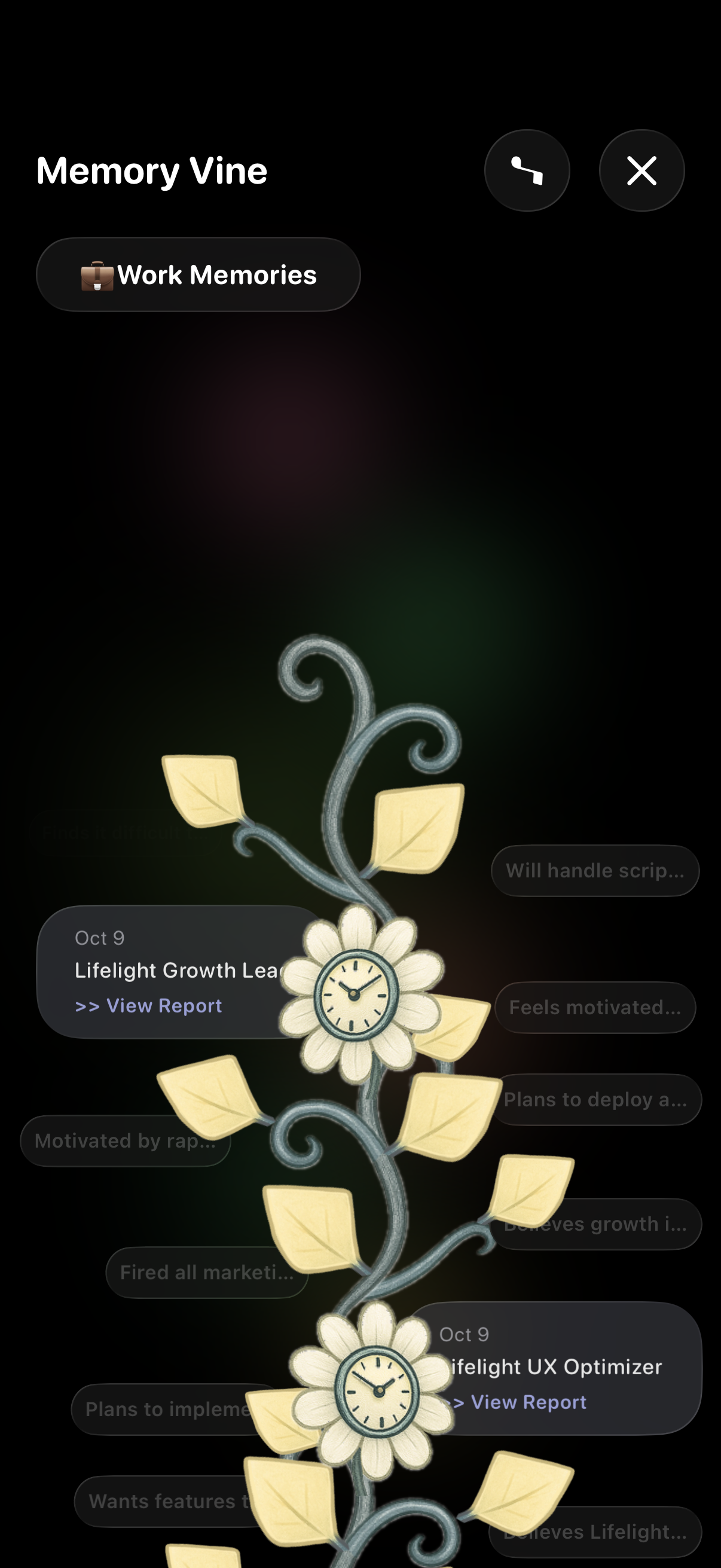
Here's the fundamental difference between Emma and other AI companions: Emma knows your story.
Replika knows what you told it in chat. Pi has no memory at all. Woebot knows your CBT homework answers.
Emma knows:
- How you felt three weeks ago and what helped
- Which people in your life bring you joy vs. stress
- Your recurring patterns and triggers
- What coping strategies have worked for you specifically
- Your growth trajectory over months
This isn't just conversation—it's companionship grounded in your actual emotional reality. Emma doesn't just listen; she remembers, connects, and reflects your journey back to you.
The Memory Vine feature is particularly powerful here. When you're struggling, Emma can say: "I remember when you felt this hopeless last March. Look at your entry from then. You thought it would never get better, but by April you wrote about feeling stronger. You have evidence of your own resilience."
No standalone chatbot can do this because they lack context. Emma's power comes from integration.
The Science of AI Companionship
Research on AI companions shows:
- Reduced loneliness: Regular AI companion use decreases loneliness scores by 26%
- Lower barrier to help: People share thoughts with AI they wouldn't share with humans
- Consistent availability: 24/7 support reduces crisis risk
- Practice for human relationships: Learning emotional vocabulary and expression
- Complement to therapy: Support between human therapy sessions
However, benefits are significantly stronger when AI companions are integrated with reflection tools (journaling) and pattern tracking—exactly what Lifelight provides.
Important Considerations
AI Companions Are Not Therapists
Emma and other AI companions provide support, not therapy. They're excellent for daily emotional processing but should complement, not replace, professional mental health care when needed.
Privacy Matters
You're sharing intimate thoughts. Choose apps with strong encryption and clear privacy policies. Lifelight encrypts all data and never sells information.
Set Realistic Expectations
AI companions are sophisticated, but they're still AI. They can't truly understand experience, only simulate understanding. That said, the emotional benefit is real—validation and support don't require human consciousness to be helpful.
Making the Most of Your AI Companion
1. Use Regularly
Daily check-ins build context and habit. Even 2-minute conversations help Emma learn your patterns.
2. Be Honest
There's no judgment. Share real feelings. Emma's usefulness depends on authentic input.
3. Combine with Journaling
This is automatic with Emma, but crucial for other apps: reflection deepens insights from conversation.
4. Review Insights
Look at Emma's observations about your patterns. Often she'll notice things you missed.
5. Seek Human Help When Needed
If you're in crisis or conversations consistently revolve around severe symptoms, connect with a human therapist. Emma will suggest this when appropriate.
Final Thoughts
If you want a chatbot to pass time, Pi is impressively conversational. If you want CBT exercises, Woebot is structured. If you want an AI friend, Replika has personality (but costs $20/month).
But if you want an AI companion that actually knows you—that remembers your struggles and victories, identifies your patterns, and provides support grounded in your real emotional life—Emma is in a category of its own.
The integration of companionship, journaling, mood tracking, and pattern analysis creates something more valuable than any standalone chatbot: a true partner in your mental health journey.
Loneliness and emotional struggle don't need to be faced alone anymore. Choose a companion that truly knows you.
